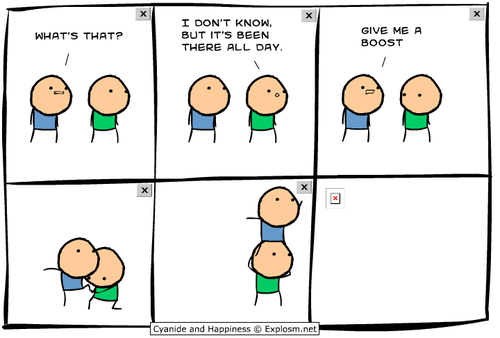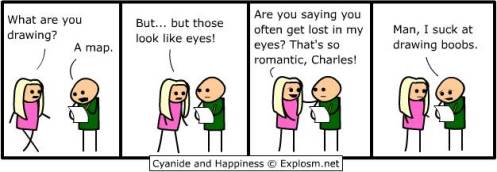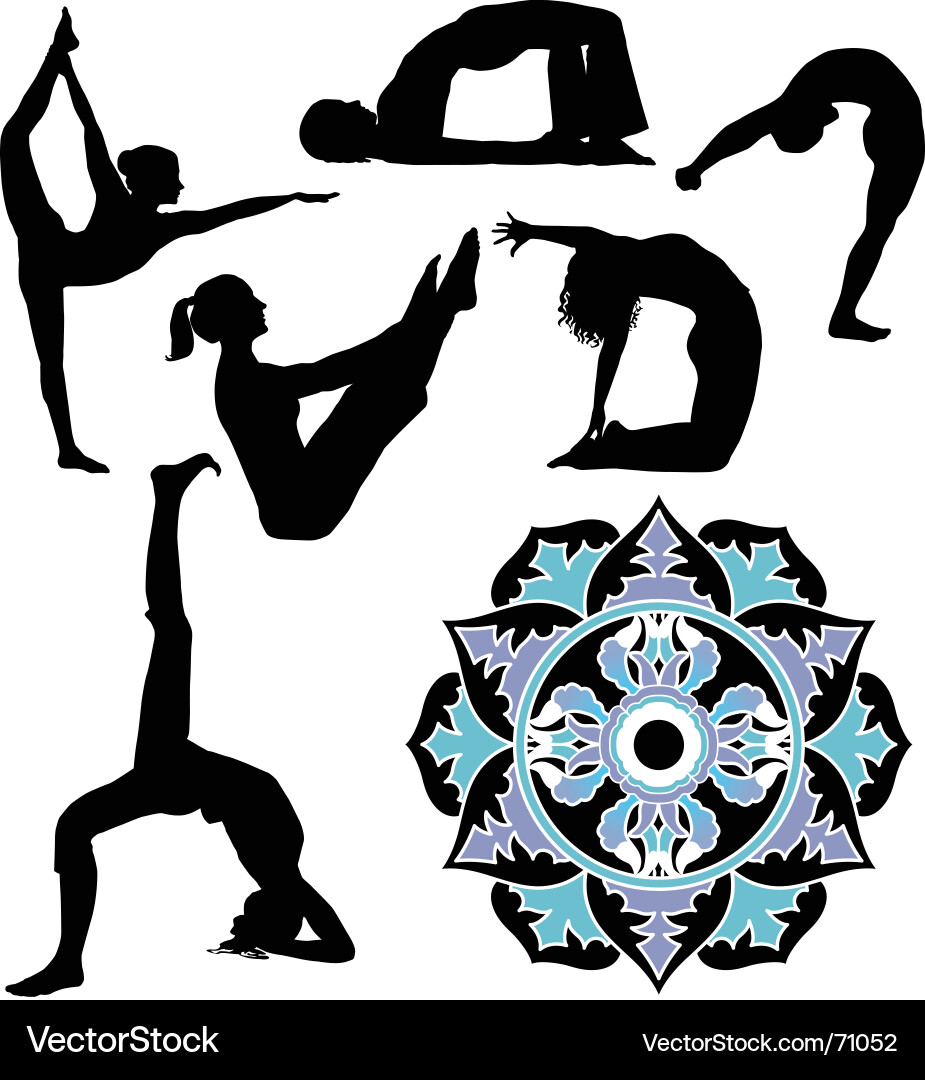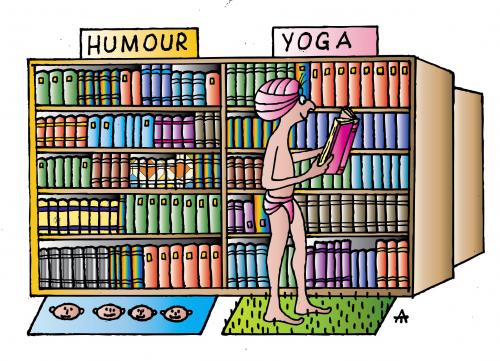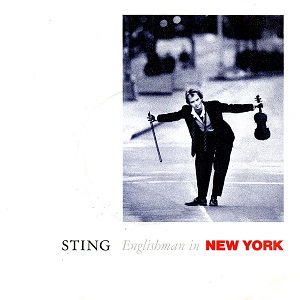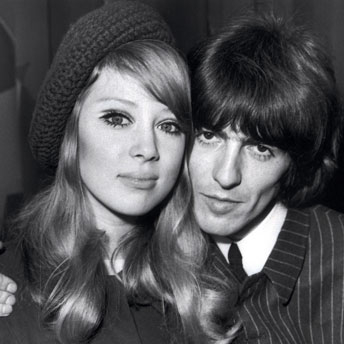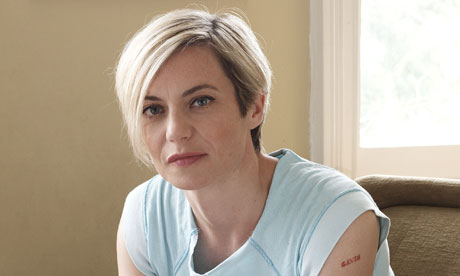
I don't know what to call it, really. Midlife crisis sounds so flamboyant, so ridiculous, so… exciting. And I haven't run off with a builder, or moved to Thailand to find my real self, or embarked on a brand-new drug habit, or taken up free rock climbing. I've just become aware, at 44, that I'm about halfway through. That there is less time to go than I have already had. This, I have to say, feels different from turning 40. That was fun: I had a party with two friends, danced a lot, drank a lot, sat on the pavement afterwards talking rubbish about constellations while waiting for a cab. To be honest, turning 40 was much like when I turned 30, though I felt a bit more grown-up (meaning I drank fizzy wine and said, "No thanks", as opposed to "Hooray", when a stranger tried to shove an unidentified pill into my mouth). There was a moment of panic, a short-breathed time when I wondered what I had done with the previous 10 years, but then I went to see Jarvis Cocker at the Roundhouse. He was fantastic, and I thought: "He's older than you, you idiot, so what's your problem?" And resolved that my 40s would be my best decade yet.
And then, and then… what? I had my second child at 43, which made me feel simultaneously young and old, and I carried on as I usually did, and gradually, gradually, I realised that something inside me was uneasy. I was struggling a little. Mourning a bit. I felt like I had the wrong coat on – too hot, too heavy – and I felt like something beautiful was rushing at me, moving past and around me at breakneck speed, and I couldn't gather it in and I didn't want to see it go. It's not important, I know that. It doesn't matter. But at some point soon, along with many of my friends, I will pass an unmarked, uncelebrated central life point. You turn 40, and if you're healthy, and optimistic, you imagine you will have more than 40 years to go. Get into your mid-40s, and past that… and you know you don't. Say it again. Try to comprehend it. I have lived over half of my life.
Hey ho, the midlife crisis. It's a Jeremy Clarkson state of mind. I always imagine Clarkson to be in a fugue state of midlife crisis: scrabbling forever in a heart-palpitating search for flashier cars to drive, younger women to hang out with, weaker people to bully, just because he doesn't want to admit that he's not only over 25, but over 50. Is that what I'm becoming? No, because it's not what Clarkson is either. He shows the world what he wants it to see. He shows it the crisis and makes it funny. But, like the difference between a wedding (the gaudy manifestation) and a marriage (the everyday reality) with a midlife crisis it's not the crisis that matters. The crisis is just the bit that other people witness. What's actually important is the midlife part, and living with that.
On the Today programme I hear Simon Armitage read his poem Knowing What We Know Now. It's about a man, Kevin, who is visited by an elf. The elf tells Kevin that, at 44, he's reached the midpoint of his life and he has a choice: he can carry on living as normal, until his death at 88 – or the elf can turn the clock back and Kevin will live the rest of his years in reverse. Reliving what he's done so far, getting younger all the time, until he dies a newborn baby.
I phone Simon, who is 48. "When you write a poem," he says, "you don't always know what's provoking it until it's finished. But you don't need to be a psychoanalyst to guess that I'm in that slot that the elf's describing and, if I'm honest, I thought that point would never come. Just in terms of the privilege of being alive, there's less of it available and it feels abrupt when you realise it." We talk about how strange it is when people around you develop grown-up illnesses – slipped discs, cancer – and about whether we should do things to try to recapture our youth. "Maybe not recapture it," he says, "but when you're young, you don't have a plan, and there's probably some value in approaching the future like that when you're older. Even though getting older makes you think you need a plan. You have to stay awake to possibilities. The crisis is a recalibration," says Simon. "It's not necessarily a comedic performance."
Perhaps part of my midlife angst is caused by my liking pop music. Should I, in my 40s, be allowed to write about an art form that is traditionally aimed at the young? I thought I would have been pensioned off by now; but I'm still asked to interview musicians, and I'm still interested. Music critic Paul Morley once told me that he thought he should retire in his 30s, and did, in fact, for a few years. But then he saw that none of his contemporaries had, so he thought: "Sod it", and returned to the fray. Simon loves music, too – so much that he formed his own band, the Scaremongers, a few years ago – and he says this: "You could say we've slightly kidded ourselves. We're the Peter Pan generation, and I think music is partly to blame. We watched older generations put music aside and start doing serious things, and we didn't – we unashamedly stayed very close to it. So we have some sense that we're still part of it and therefore young and trendy and knowledgeable. But there's a discrepancy between what we think we are and the way we actually look. Hence forming a band aged 44!"
That discrepancy is interesting, I think. I don't lie about how old I am (why would you, really? Anyhow, your kids always announce it to the world), but whatever age you are brings assumptions with it. People think you are a certain way because you are a certain age: a stroppy teenager, an adventurous 20-something, a person who should settle down in their 30s and so on. I talk to my friend Sam, who is in his early 60s, and he says that he is happier now than he has ever been, but that people who don't know him think he can't be, and treat him accordingly. "Which is extremely dull," he says. Sam is never dull. Maybe that's it. I'm making assumptions about my 40-something self that aren't true and don't fit, and that's part of my unease.
I have a conversation with my husband. He says: "We can't afford it" over and over, and: "Don't be mad."
I am 44 and becoming obsessed with buying a house (we live in a nice flat, but it has no garden). My husband is pointing out, veeerrryy slowly, as if to a simpleton, that this would involve us trebling our current mortgage. As both of us are freelance and working in industries that pay less than they used to, this is a stupid idea. "We'd both have to work our nuts off; we'd never see each other, or the kids," he says. And I think: if we were a decade younger, we could move, because we'd have 10 more years to pay off the loan. Oh no! I have got too old to have a garden!
I try to think like my husband. Why do we need a garden? We spend all our time in the park with the kids anyway: since when was I so tediously materialistic? Why am I flipping through interior mags and longing for a warehouse to convert? It's not as though our flat is a contender for Elle Deco. I clearly don't really care about the exquisiteness of my surrounding environment or I would have hung up those pictures months ago.
My midlife uncertainty is making me clutch at the attitudes and concerns that I think 40-somethings should have. It makes me look at how I live and think: You're not doing it right. You should have achieved more. You should be better at this by now – or you should be somewhere better, at least.
Ach. I have caught affluenza! So I talk to Oliver James, who coined the term and wrote a book about it. He is refreshingly brusque, telling me to "cut the crap" and to "concentrate on looking downwards rather than upwards. The media encourages us to always feed our aspirations, to look at people who have more than we have, when we should look at people who have less and feel lucky." But it's not just the media. The recession is bringing money worries to the surface. People are losing their jobs, and those in work are working harder than they used to in order to earn the same amount. It's like running as hard as you can just to keep in the same spot. You've been told all your life that you need to progress, but the credit crunch makes that impossible. "Think back to when you were a student," says Oliver. "Imagine how your teenage self would feel about what you have now. You would be delighted to have all the amenities you have."
Actually, I tell him, I think my student self would sneer. When I was young, I relished knowing that everything I owned would fit into two black bin bags, that life was portable and I was free. And now, though I appear to be jonesing for a patio, if I'm honest I don't even understand how I became the co-owner of a fridge freezer. How I acquired all this… stuff. Responsibilities. An estate car. "Yes, well, a lot of people have a problem with understanding that they are no longer a teenager," Oliver says. "Especially if they have children. It takes time to get your head around the fact that you can't spend your life as you used to, that you can't go out and party whenever you like. You're no longer a free agent. And it's important to understand the difference between being childlike and being childish. Be playful and vivacious, but lose the teenage fantasy that you don't depend on anyone and they don't depend on you." Or you really will run off with someone younger, someone less wrapped around and through your life than your husband. And I don't want to.
What do I want my midlife to be like? What about the rest of my life, that diminishing resource? I try to think, but I'm so often distracted: by working to deadlines, by going out, but especially by my children. They are young, so they are fun but relentless. That unremitting routine that kids need: up at the same time, bed at the same time, breakfast, dinner, tea, every day every day. It makes life pass so quickly, and that makes me panic.
I don't want to wake up in 10 years' time, when I'm 54, and feel the same way I do now. I'm scared of that. I'm frightened. Because I only have 20 years of working life left, and I have to combine those years with bringing up my kids. There is no way I can achieve what I want. Whatever that is (I don't know).
Simon Armitage says to me: "You grow up with the sense that the best years are ahead of you, and in your mid-40s that becomes questionable. You wonder whether you've peaked on all sorts of levels, certainly in terms of income and output. For writers, poets, the clear evidence is that the majority do their best work when they're young. Why is that? Do you just get fed up? Frustrated or bored? I don't feel those things."
Psychotherapist Philippa Perry gave a talk at the ICA earlier this year, entitled "How To Be Happy". I email her and say that I feel as though I'm at the top of a mountain and it's downhill from now on. She replies that this isn't a very helpful metaphor, that I should try changing it. "Habits of thinking get more ingrained as we think them more," she writes. "Literally: neural pathways get more established. But habits of thinking can be changed. Your brain remains plastic throughout your life. That means it's never too late to learn new things, thus giving yourself new experiences. "When people torment themselves with: 'If only I had… or if only I were…'," she writes, "I like to bring them to their actual felt experience of being alive in the present. People can suddenly find themselves alone, or jobless, at midlife and panic that they need another person or job in order to be alive. But that is only an idea. I like to keep things experience-based rather than idea-based. When they really experience the different relationships and occupations they actually have, they find that they are thriving."
I'm trying to remember the title of a book. Oliver James told me that Tolstoy wrote a brilliant book about a man going through a midlife crisis, but I can't read my notes. I go on Twitter and ask if anyone knows what it might be. Ed Simons from the Chemical Brothers, among others, tells me it's The Death of Ivan Ilyich: about a man who, at 45, has a minor accident which kills him over a period of weeks. While he's dying, he realises that throughout his life he's been trying to avoid the notion of death through his obsessions with status, appearance and money.
Ed also sends me a link to a discussion of Ivan Ilyich in another book called Staring at the Sun by psychotherapist Irvin Yalom. Yalom argues that we need to be properly conscious that we are going to die in order to live meaningful, purposeful lives. Too many of us believe we are special, that we will somehow cheat death, or that there is an afterlife, or that our "immortality projects" matter more than, for instance, spending time with our family.
Online, I find an interview with Yalom. He's 65 and says that he doesn't have unlimited years left so he tries not to do anything that feels repetitious. He's changed his work (from teaching to writing), he turns down lunch invitations "from a lot of people that I just don't want to be with", and he's very tender to his wife. None of which stops him from waking up in a state of dread at the thought of dying. "It's harder for me to dispel the anxiety at night. Whereas when I think about it later on, when I wake up in the morning, then I do experience real joy at being alive."
The Observer sends a photographer to take my picture, and she comments on my tattoo. "Who's Gavin?" she asks. It stops me in my tracks. Gavin is – was – Gavin Hills, a friend and fellow journalist who worked at The Face during the 1990s, at the same time I did. He drowned off the coast of Cornwall on 20 May 1997, three days after his 31st birthday. When I got the tattoo, soon after, I almost laughed: the pain of it was so minor compared to the appalling, churning gut-wrench of his sudden death. Gavin never had any problem with a midlife crisis. He didn't live long enough. I think: you can live until you're 31, like Gavin. You can live until you're 101, like my granny. You can live three score years and 10; or less, or more. My midlife point could have been when I was 24, not 44. I don't know.
But: how lucky to have lasted so long! To have lived long enough to have the luxury of contemplating – of properly fearing – your own death. Rather than it just arrive too early for you to do what you wanted, for you to appreciate what you have, to enjoy the wonder, and the love, and the panic.
Midlife or not, in the end, or in the middle, these are the days of my life. These are the days of your life. And the thing to do – is live them.
© 2011 Guardian News and Media Limited or its affiliated companies. All rights reserved.
Tomorrow I will post my reply for you to read. Not often I am moved enough to write a long letter in reply to something I have read and perhaps she will never get it but I will let you read it tomorrow.
